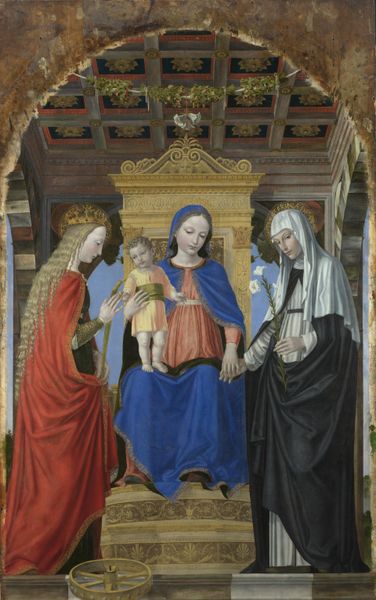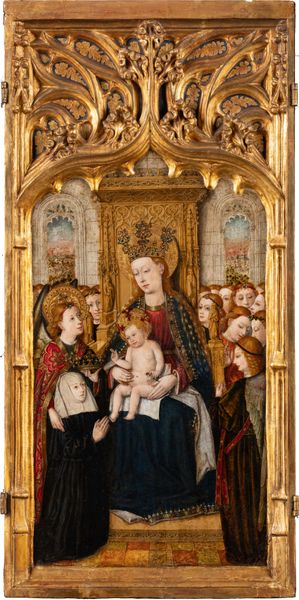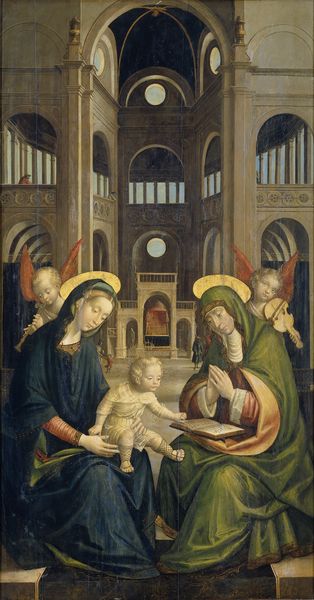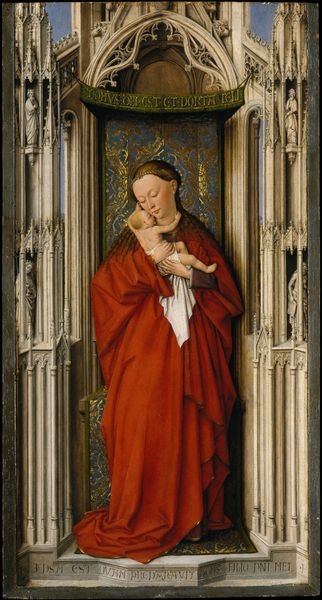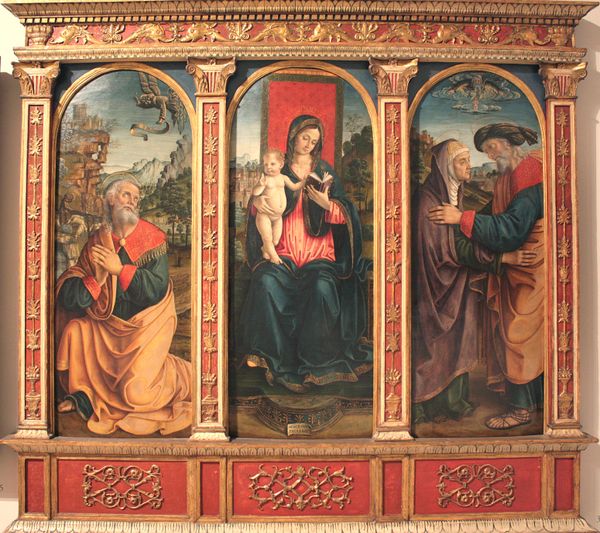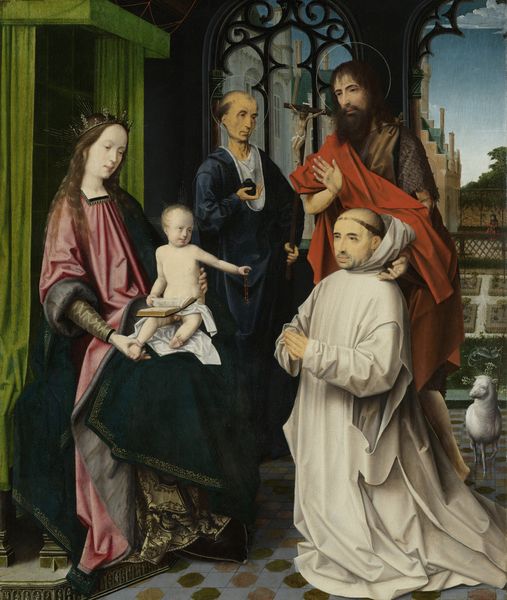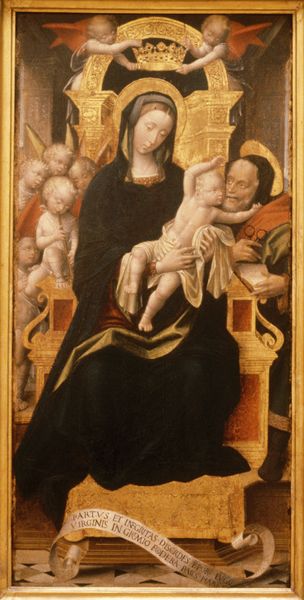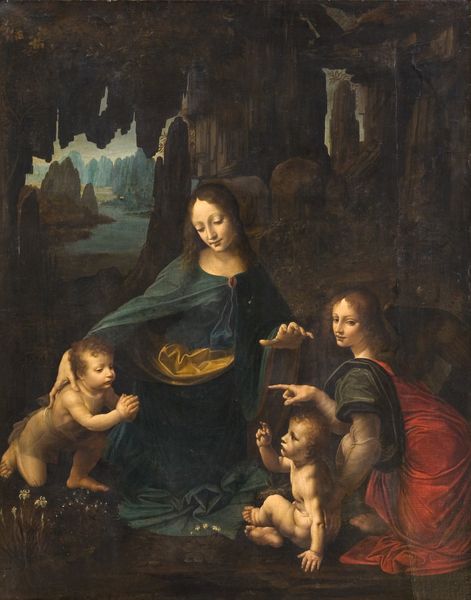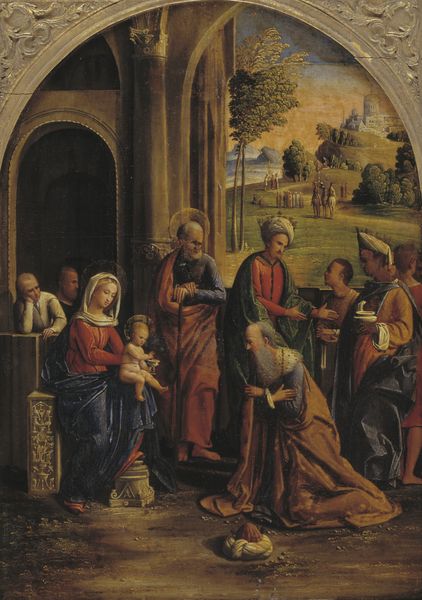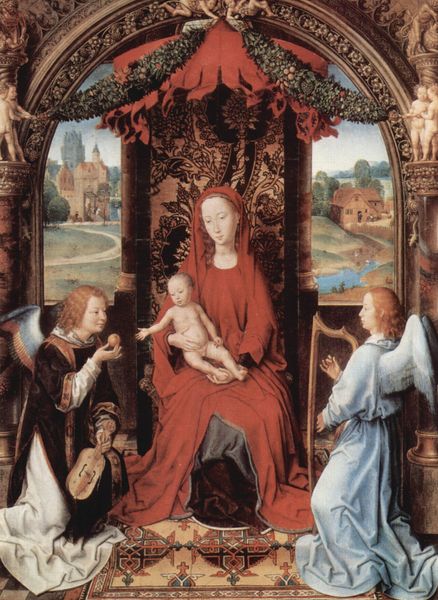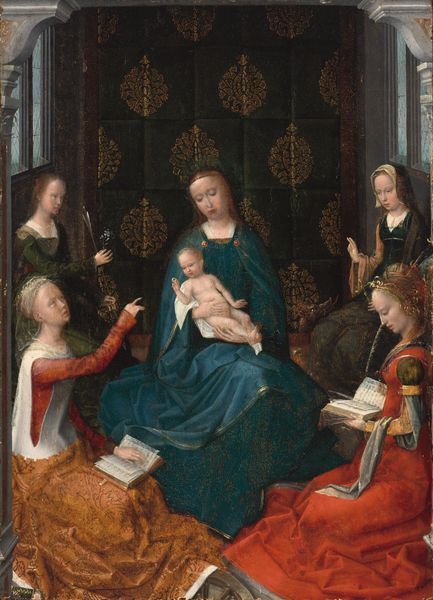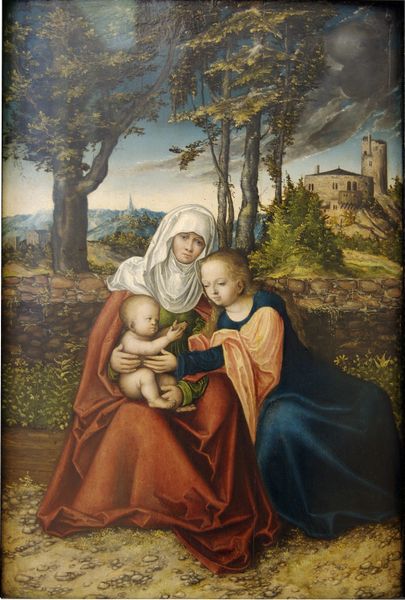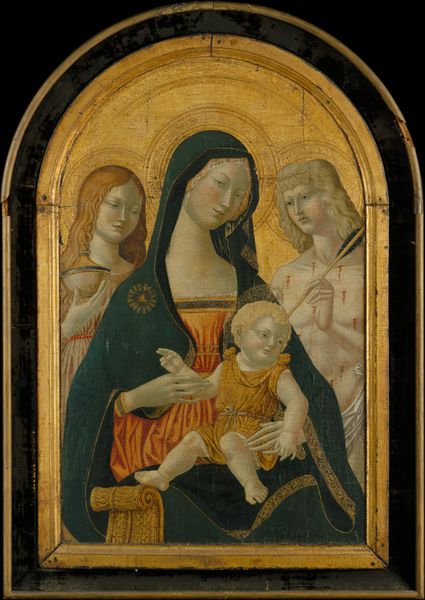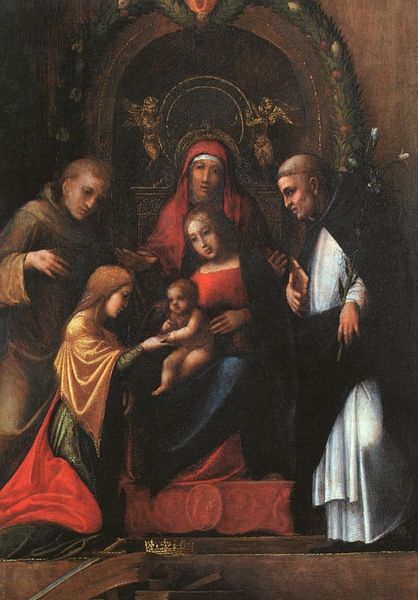
oil-paint
#
portrait
#
oil-paint
#
figuration
#
oil painting
#
history-painting
#
italian-renaissance
#
portrait art
Copyright: Public domain
Defendente Ferrari painted this 'Adoration of the Child with a Donor' in the first half of the sixteenth century. It presents a vision of the Madonna and newborn Christ. The inclusion of a donor in such a scene was common practice in Italy at this time. The geography of the Italian peninsula, with competing city-states, meant that wealth and power were distributed across different centres, each with their own distinctive artistic styles and patronage networks. Here, the donor, a wealthy individual, has paid for his likeness to appear in the same space as holy figures. The inclusion of the donor subtly comments on their social standing, reflecting the hierarchy of the period and the social structures that shaped artistic production. To understand this artwork better, archival research into the patronage of religious art during the Italian Renaissance and institutional histories of Italian art are essential. Remember, that the meaning of art shifts depending on its social and institutional context.
Comments
No comments
Be the first to comment and join the conversation on the ultimate creative platform.
